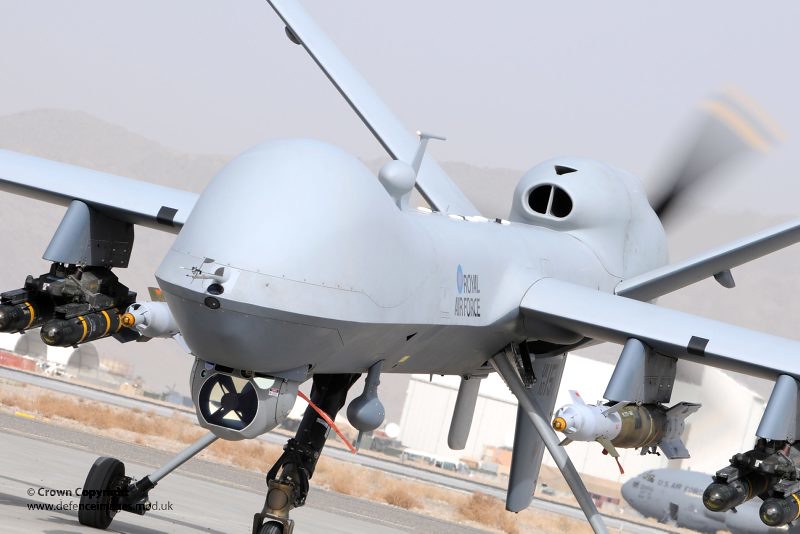To some, War is a continuation of politics through other means. In this sense, the battlefield becomes an extension of international diplomacy, where political ideology often becomes void. In modern politics, the line between Republican and Democrat foreign policy has become blurred; to which It has been summed up as “Kill everything that moves. And with terrorism often hold up in caves, hazard a guess as to who that leaves behind.” This is reminiscent of the west’s foreign policy and their obsession with “unmanned targeted killings.”
Defining the battlefield has become disputed. For many years International relations scholars have shifted their focus to the ‘everywhere war’, in which the distinction between battlefront and homefront has become blurred. With this, there has been a growing trend of militaries taking part in targeted bombing and extrajudicial killings in both civilian and baron areas. Questions arise from this: Who are the people responsible and more importantly – does it work?
To understand this obsession, the history of military strategy has a possible explanation for an increased trend in aerial conflict. F.W Lancaster In his work claimed that firebombing and destruction of entire cities was an eventuality that the west’s military establishment needed to replicate. Throughout the war, only 7% of bombs hit their target out of the 2.7 million tons dropped by the Allies. This was later continued through to the Vietnam war in which 2.5 million tons of munitions were dropped throughout 580,000 missions – equivalent to a planeload of bombs being dropped every 8 minutes, 24,7 for 9 years. If the success rate of aerial warfare is so low, why is it the case?
A realist perspective of international relations places a rather cynical view on politics, claiming that it is an endless struggle for power and survival. Thus, war is inevitably a part of human nature. Despite this, targeted killings, especially drone warfare were anti-ethical of the west’s foreign policy for many years. However, they become a central tactic of counterterrorism efforts since Israel’s persistent use against Palestine in 2000. Rather than a theoretical explanation, Pape argued that the bureaucratic interests and political pressure for cheap solutions to difficult foreign policy, has created an obsession for the west to take part in bombing runs and drone strikes. This comes only recently where Trump’s interventionist approach was due to a proposed cutting of funding to the state department, creating a lack of diplomatic expertise that would provide the US with diplomatic reasoning.
According to a 2018 report, 24 states have access to armed drones and 13 have used them previously. Implications arise from this on a large scale. What defines responsible use of drones and who defines these? The most common justification is the law enforcement paradigm, to argue that the use of drones is to prevent an immediate threat to life – taking a utilitarian approach in which the maximisation of happiness and well-being is sought for.
What states fail to discuss is the loss of civilian life. The US openly published a monthly Airpower summary that gave detailed accounts for each bombing run. Yet in March 2020, President Donald Trump stopped publishing these reports and Biden has yet to re-release them. Further, the data surrounding drone strikes is also disputed after a district judge in 2011 ruled that the CIA did not have to inform the public about targeted killings. What is clear is there is a lack of democratic accountability for a state’s actions in foreign territory.
From a historical perspective, the US killed more Japanese civilians than Germany did throughout the war. Which is often a common theme of targeted killings. The changing nature of war has shifted to civilians becoming the primary target and whilst the bombs have become smarter, the causality of civilians is often due to flawed intelligence. According to the Washington Post, bomb runs do not work as they rely too much on contextual information rather than the capability to get the job done.
The ramifications of this are immense. The Syria paradox is seen throughout the world. The continuous airstrikes on civilian targets have ultimately led to a widespread refugee crisis that the west has failed to manage.
The use of drone strikes and targeted killings is impossible to justify as there continues to be a lack of responsibility and the role of international law is often flimsy. Despite a rise in post-materialist interests advocating for the abolishment of drones, the stopping of arms sales, and the protection of civilian life, what is clear is that bureaucratic interests always win.
Obama’s warning of drone usage has proven fatal in saying that other states may not follow the same liberal interests. Yet what we are seeing is the continuation of a multidimensional battlefield whereby extrajudicial assassination has become the norm.
After the election of a democratic president in 2020. A president who claimed that ‘diplomacy is back’, has continued to drop bombs.
It is clear that war takes no side…
Header Image Credit: RAF Reaper MQ-9 Remotely Piloted Air System – Flickr

